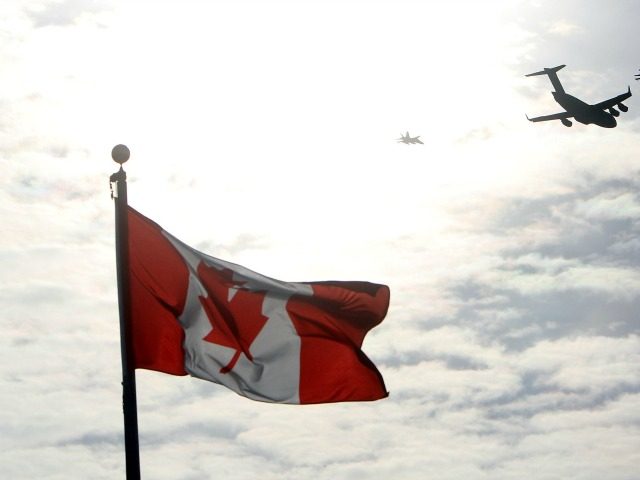A Reuters/Ipsos poll finds nearly half of respondents eager to deport illegal aliens, expressing fears that border violators compromise public safety and giving their government a big thumbs-down on how it handles immigration. The punch line is that it is a poll of Canada, and the illegal aliens are hopping across the border with the United States.
Canadians appeared to be just as concerned about illegal immigration as their American neighbors, according to the poll, which was conducted between March 8-9. Some 48 percent of Canadians said they supported “increasing the deportation of people living in Canada illegally.”
When asked specifically about the recent border crossings from the United States, the same number – 48 percent – said Canada should “send these migrants back to the U.S.” Another 36 percent said Canada should “accept these migrants” and let them seek refugee status.
In the United States, where President Donald Trump was elected partly on his promise to boost deportations, 50 percent of adults supported “increasing the deportation of illegal immigrants,” according to a separate Reuters/Ipsos poll that was conducted during the same week in the United States.
41 percent of respondents said the influx of border violators was making Canada less safe, while 46 percent said the influx had no impact on safety. The Reuters article cites concerns that the number of border crossings will increase significantly when the weather improves in spring.
Prime Minister Justin Trudeau’s approval rating on the immigration issue was underwater at 37 percent approve, 46 percent disapprove. Reuters notes this is a very significant discrepancy with a January Ipsos poll that gave Trudeau 59 percent approval / 41 percent disapproval.
Another separate Ipsos poll found immigration ranking fifth as a national priority for Canadians, behind health care, taxes, unemployment, and poverty.
The feedback quoted by Reuters to its poll is interesting in its familiarity to American ears. The tide of refugees is said to be cutting into Canada’s historically high level of support for legal immigration. One politician said his constituents are “pissed off” by people who are illegally “jumping the border.”
“Refugees are much more welcomed when we have gone and selected them ourselves as a country, as opposed to refugees who have chosen us,” said Janet Dench of the Canadian Council for Refugees.
Another recent poll by Radio-Canada found 74 percent support for screening new immigrants for “Canadian values.”
That poll, which was titled “Canadians, Populism, and Xenophobia,” found a strong 58 percent majority agreeing that refugees are “a strength rather than a burden.” However, the question of demographic shifts due to large-scale immigration received a more mixed response: 40 percent said a growing number of ethnicities made Canada greater, 22 percent said it made Canada worse, and 35 percent thought it had no effect.
That poll found Canadians a bit wary of Muslim immigrants, especially in Quebec:
While nearly three quarters of Canadians (74 per cent) viewed the construction of a Catholic church as favorable, only 58 per cent said the same about the construction of a mosque. The number drops to only 40 per cent when you isolate Quebecers.
Forty-seven per cent of respondents are also worried that Muslims weren’t integrating into society properly. When isolating Quebecers, that number jumps to 57 per cent.
CBC quotes Haroun Bouazzi of Muslims and Arabs for a Secular Quebec describing the results of the Radio-Canada poll as evidence of scapegoating:
We have all these problems, and our politicians don’t have simple solutions. Even the ones in power right now don’t have solutions, so over the past years, a good way of making us talk about other things is actually finding a scapegoat — finding a group that we can make look like a real problem. And obviously the Muslim minority, specifically, play[s] this role.
In February – before either of these polls were taken, but after Conservative politician Kellie Leitch proposed the “Canadian values” test for immigrants – the National Post published speculation that Canadians are generally supportive of immigration but that support is not held as strongly as the elite prefers to believe. In this view, refugees were straining Canadian support for immigration. Even Liberal supporters balked at the largest proposed refugee programs.
Of course, this theory was accompanied by editorial warnings that Canadians are falling prey to the dark forces of “intolerance” and even the “dark nationalist vision of Donald Trump.” Insulting the public as bigots or fools manipulated by fearmongers the instant its enthusiasm for mass immigration wavers even a tiny bit has driven populist revolts in other Western nations. Elites across Europe and the United States have proven incapable of reasonably responding to even mild criticism of immigration policy. Perhaps Canada will be next.

COMMENTS
Please let us know if you're having issues with commenting.